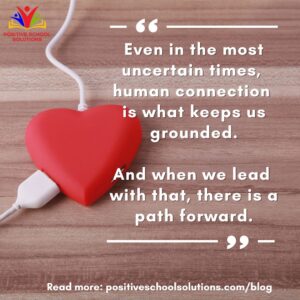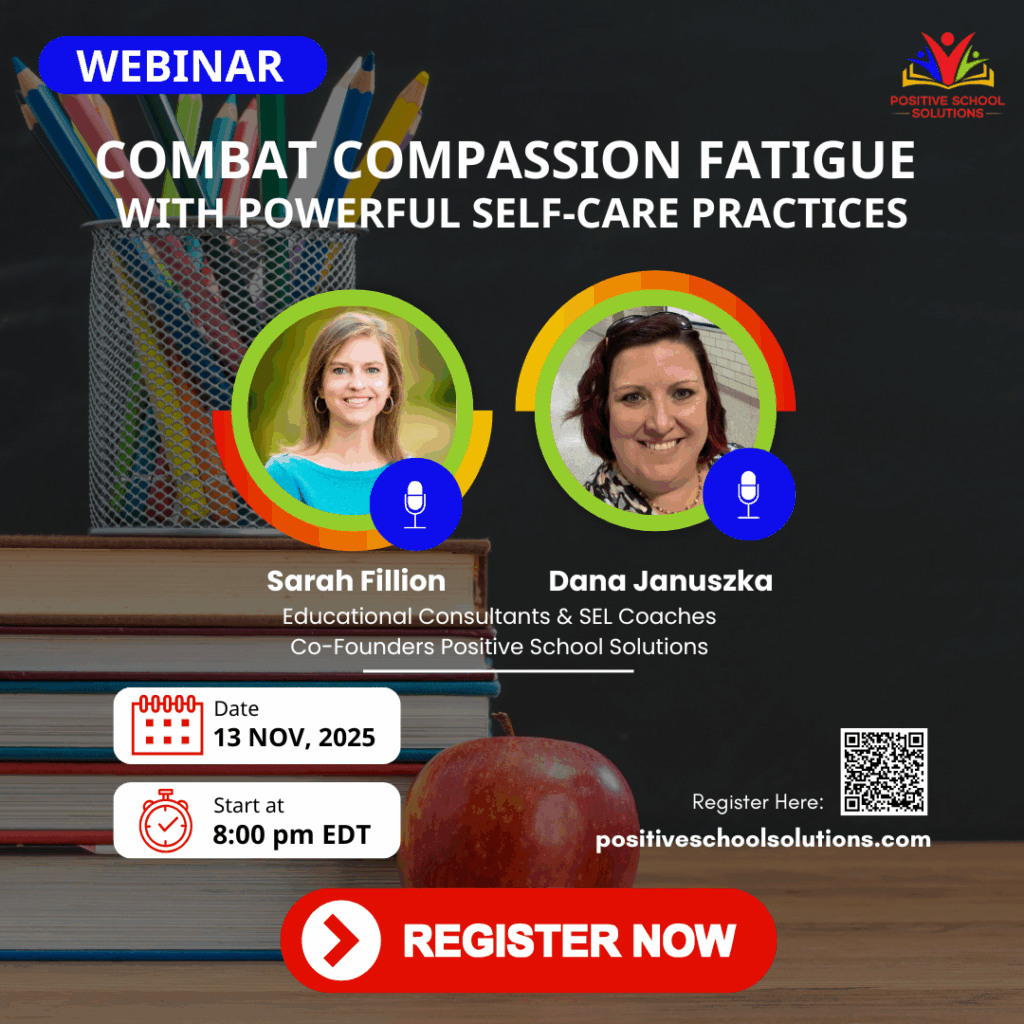
Right now, the world of education feels incredibly uncertain.
Budgets are shrinking. Expectations are growing. Teachers are burning out. And leaders are being asked to do the impossible—make heartbreaking decisions while somehow still being a source of strength, calm, and inspiration.
There is no sure-footedness in this season. Every step feels like walking across a rope bridge in a windstorm. So leaders are left with a difficult choice:
- Do I pretend to be confident when I’m actually worried, scared, or overwhelmed?
- Or do I admit that I’m feeling just as lost as everyone else?
Neither option feels good. And the truth is—there’s no “winning” right now.
Many of you are being asked to decide which staff members to cut, only to turn around and ask the remaining staff to take on larger classes, more roles, and fewer supports. Some of you are forced to split up classes due to a lack of substitutes, watching student loads surge by 50% overnight. Others are faced with gut-wrenching choices about which vital services to cut as budgets are slashed to the bone.
And in the midst of all this… you’re supposed to lead.
So what can you do?
You can lead with what will last.
You can lead with personal and relational skills.
Why Personal and Relational Skills Matter More Than Ever
In a world swirling with chaos, personal and relational skills are our anchor. These are the skills that build resilience, connection, and community—even in the storm.
Not soft skills. Not extra fluff. But essential, relational abilities we need now more than ever.
Skills like:
- Collaborating with others, even in high-stress environments.
- Maintaining a positive mindset—without defaulting to toxic positivity that invalidates real emotion.
- Finding moments of gratitude in the chaos.
- Leading with love and kindness, even when that kindness isn’t always returned.
- Holding onto the smallest moments of joy—and letting them carry you through the next minute, the next hour, the next hard day.
These aren’t optional anymore.
They’re necessary.
And they must be explicitly taught.
They must be practiced—by students, yes, but also by staff. With families. With ourselves.
Because when we focus on personal and relational skills, we begin to focus on our own humanness again. And that shift—however small—is what creates space. It opens a door to empathy. It reminds us that despite our differences, we do share something: a desire to belong, to be seen, to be supported.
From that small opening, we begin to build bridges.
And when we build those bridges—together—we move from fractured systems toward connected communities.
That’s where magic lives.
It looks like:
- Conversations instead of arguments.
- Exploration instead of polarization.
- Collaboration instead of competition.
- Love instead of judgment.
Let me say this clearly: There has never been a more important time to be a school leader with effective personal and relational skills.
Your courage, your emotional wisdom, your ability to lead with both strength and softness—that’s what will carry your school forward. That’s what will carry all of us forward.
So if you’re wondering where to begin, let me offer this:
Start with your people.
Start with you.
And start by anchoring everything around the personal and relational skills that matter most.
If you’re looking for a way to lay this foundation in your school or district, let’s talk about our Lesson Plan for Life. It’s a research-backed, real-world-ready experience that helps educators reconnect with themselves first, so they can then foster these same powerful personal and relational skills in their teams, classrooms, and communities.
Because even in the most uncertain times, human connection is what keeps us grounded.
And when we lead with that, there is a path forward.
Let’s walk it—together.
Written by Sarah Fillion 2025

